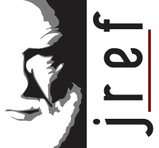By Sharon Hill
Faye Flam, science writer and presenter at TAM2013, published a piece this past week on Forbes that resonated with skeptical audiences. Or at least it should have.
She was writing about how the Ferguson shooting of Michael Brown was fraught with problematic eyewitness testimony that was inconsistent, made up, or factually wrong. The unreliability of such testimony and the malleability of memory is a core concept in evaluating evidence, especially in cases of unusual events or crime situations.
The piece, What Science Says About The Ferguson Case: Memory Can Be Hacked, also referenced long-time JREF friend and TAM presenter Elizabeth Loftus. Dr. Loftus’ book Eyewitness Testimony should be required reading, in my opinion, for any investigator or researcher into extraordinary claims. Thanks to Dr. Loftus’ (and others') work, we now are in no doubt that memory recall and eyewitness testimony can be perilous. It can send people to jail, destroy families, and… it can intensify civil unrest and national strife, as it has these past few weeks centered upon a troubled neighborhood in Missouri.
Flam’s article in Forbes should have resonated with a skeptical audience for another reason - the problem of letting emotion overwhelm facts. When it comes to hot-button, impassioned issues, everyone will interpret “facts” in terms of their own world view. This will differ between us creating dissonance. But we, as the bystanders and over-the-fence-peekers into the Ferguson Grand Jury proceedings, did not hear the complete case as they did. Unless you were on the jury (or read the voluminous testimony carefully) you did not know the facts used in the decision and should not be making judgments as if you did [1].
Faye Flam, science writer and presenter at TAM2013, published a piece this past week on Forbes that resonated with skeptical audiences. Or at least it should have.
She was writing about how the Ferguson shooting of Michael Brown was fraught with problematic eyewitness testimony that was inconsistent, made up, or factually wrong. The unreliability of such testimony and the malleability of memory is a core concept in evaluating evidence, especially in cases of unusual events or crime situations.
The piece, What Science Says About The Ferguson Case: Memory Can Be Hacked, also referenced long-time JREF friend and TAM presenter Elizabeth Loftus. Dr. Loftus’ book Eyewitness Testimony should be required reading, in my opinion, for any investigator or researcher into extraordinary claims. Thanks to Dr. Loftus’ (and others') work, we now are in no doubt that memory recall and eyewitness testimony can be perilous. It can send people to jail, destroy families, and… it can intensify civil unrest and national strife, as it has these past few weeks centered upon a troubled neighborhood in Missouri.
Flam’s article in Forbes should have resonated with a skeptical audience for another reason - the problem of letting emotion overwhelm facts. When it comes to hot-button, impassioned issues, everyone will interpret “facts” in terms of their own world view. This will differ between us creating dissonance. But we, as the bystanders and over-the-fence-peekers into the Ferguson Grand Jury proceedings, did not hear the complete case as they did. Unless you were on the jury (or read the voluminous testimony carefully) you did not know the facts used in the decision and should not be making judgments as if you did [1].


